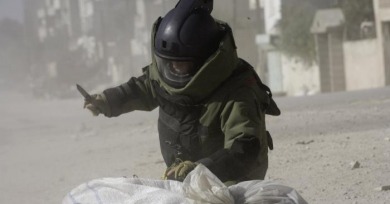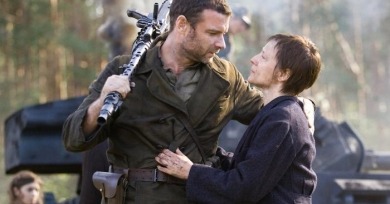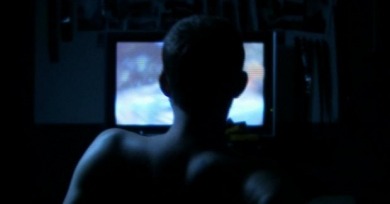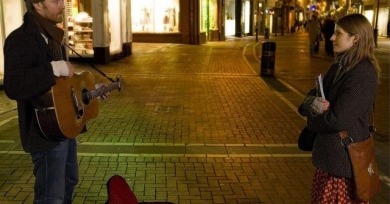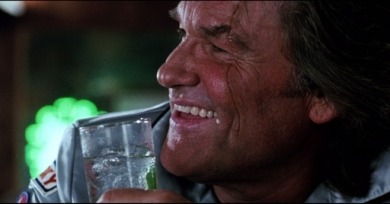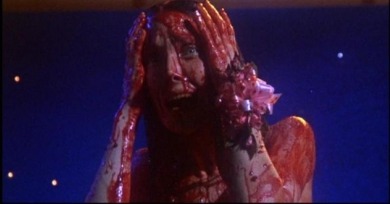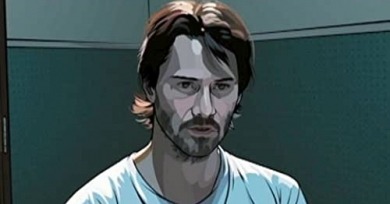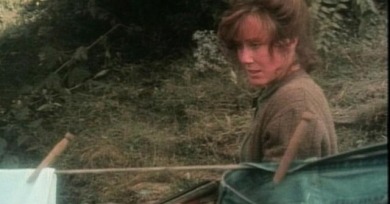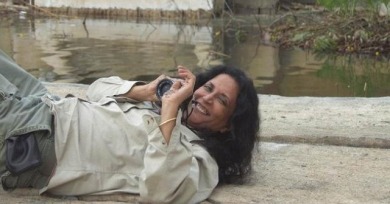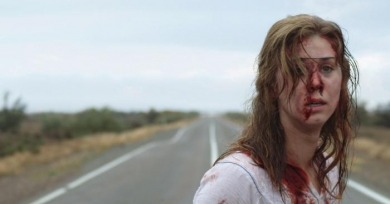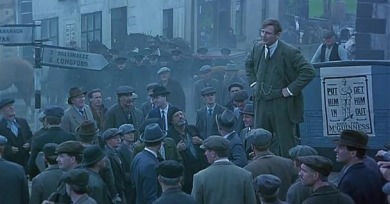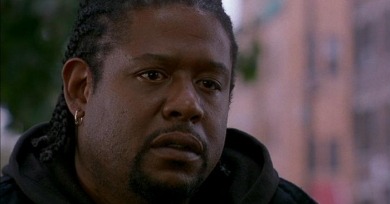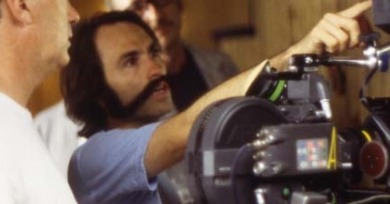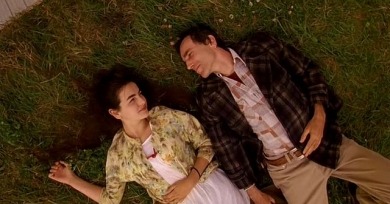Jeannette Catsoulis
The opening of The Hurt Locker is a textbook example of how to use images not only to impart information but to brand it on the brain.
Jewish-superhero movies may be thin on the ground, but that’s no reason to welcome Defiance as anything other than an old-fashioned adventure yarn hobbled by its own sense of religious significance.
If Paddy Chayefsky and Newton Minow had ever bonded over too many cocktails—secretly spiked by Neil Postman—the result might have been The Signal, a grungy warning to anyone who would rather watch than engage.
"The idea really came from being a musician and loving music. When I watch films I find myself responding to the score much more than the dialogue. I always imagine that the director wrote the music."
A three-hour-plus wet dream of babes, boils, and boilerplate scenarios, Grindhouse is a balls-to-the-wall extravaganza of geek love for all things sleazy, nauseating, hyper-violent, and degenerate.
I don’t think De Palma has ever been given enough credit for dragging the patriarchal dread of female sexuality into the light of popular culture.
The tedium of addiction, and of observing the addicted, may be accurately represented, but it’s hardly riveting cinema—the rare moments of insight are smothered by the freeform, meaningless yakking of brain-fried Bob and his substance-saturated buddies.
Though invariably praised for the intelligence of his writing, Sayles is rarely singled out for visual flair. His integrity and earnestness have caused many commentators to label his movies worthy but dull, lacking both esthetic daring and technical pizzazz.
"It’s about making people as real and as human as possible, whatever their politics; and if you want to make them real, they can’t be on platforms giving lectures."
Scrambling inelegantly for the moral high ground, a number of fainthearted critics are using the recent horror doubleheader of Wolf Creek and Hostel to persuade their readers they still have souls, if not stomachs.
Attempting to dramatize Ireland’s struggle for independence without confronting religion is like trying to explain the history of the American South without alluding to race.
Though cagey about its location—license plates announce only “The Industrial State” or “The Highway State”—much of Ghost Dog was shot in Jersey City, where the boarded-up storefronts and decomposing car lots frame a character as obsolete as his surroundings.
"What is your responsibility to people whose love you have accepted but maybe you no longer join in that love? Culturally we’ve really talked a lot about taking care of the self, and that’s not necessarily illegitimate, but I think the process of taking care of each other can get lost in the shuffle. That is a big theme for me."
Writer-director Rebecca Miller’s The Ballad of Jack and Rose, is so gorgeously photographed, so thoughtfully performed, and so relentlessly sincere, you can almost overlook how truly awful it is.
